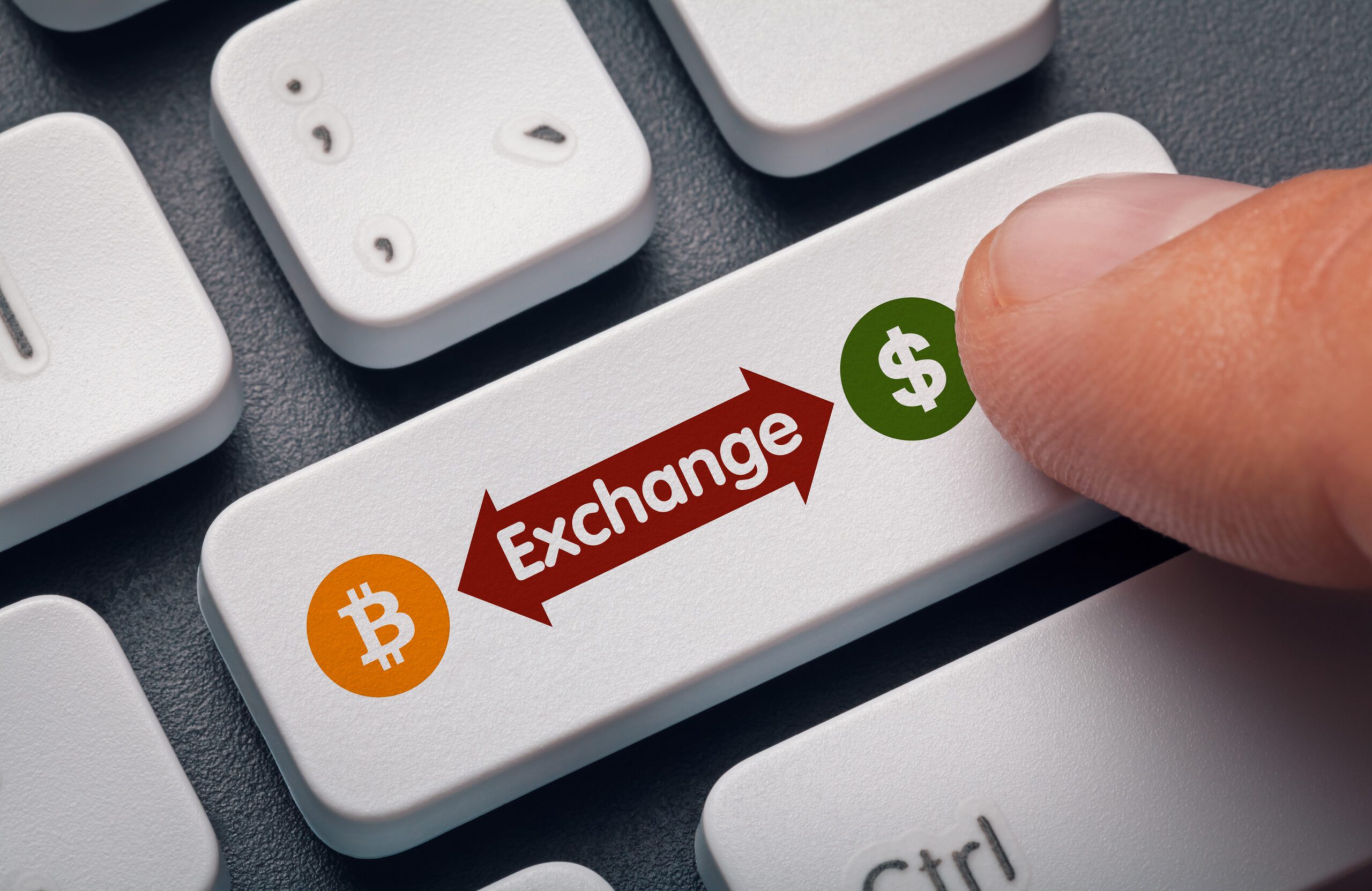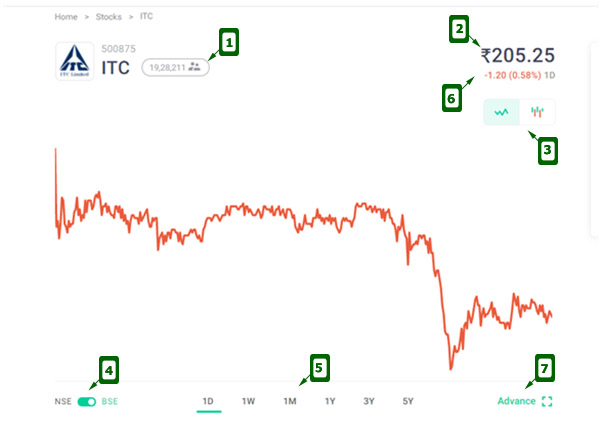Cryptocurrency Exchanges
Platforms that facilitate the trading of cryptocurrencies for other assets, including digital and fiat currencies
What are Cryptocurrency Exchanges?
In order to outset ownership and selling cryptocurrencies and other digital assets, the near common way is to transact with Crypto Exchanges. Cryptocurrency exchanges are privately-owned platforms that facilitate the trading of cryptocurrencies for other crypto assets, including digital and fiat currencies and NFTs.

Cardinal Highlights
- The almost common way of transacting in cryptocurrencies and other digital assets is via a Cryptocurrency Commutation.
- There are Centralized and Decentralized Cryptocurrency Exchanges, and each offers advantages and disadvantages.
Centralized Cryptocurrency Exchanges (“CEX”)
Centralized cryptocurrency exchanges human activity equally an intermediary between a buyer and a seller and make coin through commissions and transaction fees. You tin can imagine a CEX to be similar to a stock substitution only for digital assets.
Pop Crypto Exchanges are Binance, Coinbase Exchange, Kraken and KuCoin. Much like stock trading websites or apps, these exchanges allow cryptocurrency investors to buy and sell digital assets at the prevailing price, called spot, or to leave orders that get executed when the nugget gets to the investor’s desired price target, chosen limit orders.
CEXs operate using an order volume system, which means that buy and sell orders are listed and sorted by the intended purchase or sell cost. The matching engine of the exchange then matches buyers and sellers based on the all-time executable price given the desired lot size. Hence, a digital asset’s toll will depend on the supply and demand of that asset versus some other, whether it exist fiat currency or cryptocurrency.
CEXs decide which digital asset it will allow trading in, which provides a pocket-sized measure of comfort that unscrupulous digital avails may be excluded from the CEX.
Decentralized Cryptocurrency Exchanges (“DEX”)
A decentralized commutation is another blazon of exchange that allows peer-to-peer transactions directly from your digital wallet without going through an intermediary. Examples of DEXs include Uniswap, PancakeSwap, dYdX, and Kyber.
These decentralized exchanges rely on smart contracts, self-executing pieces of code on a blockchain. These smart contracts permit for more than privacy and less slippage (some other term for transaction costs) than a centralized cryptocurrency exchange.
On the other hand, even though smart contracts are rules-based, the lack of an intermediary third party means that the user is left to their own, so DEXs are meant for sophisticated investors.
Advantages of Centralized Cryptocurrency Exchanges
1. User-friendly
Centralized exchanges offer beginner investors a familiar, friendly mode of trading and investing in cryptocurrencies. As opposed to using crypto wallets and peer-to-peer transactions, which can be circuitous, users of centralized exchanges can log into their accounts, view their account balances, and brand transactions through applications and websites.
two. Reliable
Centralized exchanges offer an extra layer of security and reliability when information technology comes to transactions and trading. By facilitating the transaction through a developed, centralized platform, centralized exchanges offering higher levels of comfort.
3. Leverage
One of the other benefits of certain CEXs is the selection to leverage your investments using borrowed money from the substitution, called margin trading. It allows investors to reap college returns, but losses can also be amplified.
Disadvantages of Centralized Cryptocurrency Exchanges
1. Hacking risk
Centralized exchanges are operated past companies that are responsible for the holdings of their customers. Large exchanges unremarkably hold billions of dollars worth of bitcoin, making them a target for hackers and theft.
An example of such an incident is Mt.Gox, which was once the world’due south largest cryptocurrency exchange company before it reported the theft of 850,000 bitcoins, leading to its collapse.
2. Transaction fees
Unlike peer-to-peer transactions, centralized exchanges oft accuse high transaction fees for their services and convenience, which tin be particularly loftier when trading in large amounts.
iii. Custody of digital assets and take chances of fraud
Lastly and most importantly, almost CEXs will hold your digital nugget as a custodian in their own digital wallet rather than allow y’all to store your private keys on your own digital wallet. While more convenient when you want to merchandise, in that location are drawbacks, namely the adventure of the centralized cryptocurrency exchange failing and fraud.
Recent examples include the failure of the 50 USD billion algorithmic stablecoin TerraUSD and sis token Luna, the bankruptcies of hedge fund Three Arrows Capital, lender Celsius Network, broker Voyager Digital and the sudden collapse of FTX and Alameda Inquiry.
Advantages of Decentralized Cryptocurrency Exchanges
1. Custody
Users of decentralized exchanges do not need to transfer their avails to a third political party. Therefore, there is no risk of a company or organization being hacked, and users are assured of greater prophylactic from hacking, failure, fraud, or theft.
ii. Preventing market manipulation
Due to their nature of assuasive for the peer-to-peer exchange of cryptocurrencies, decentralized exchanges prevent market manipulation, protecting users from fake trading and wash trading.
3. Less censorship
Decentralized exchanges exercise not require customers to fill out know-your-customer (KYC) forms, offering privacy and anonymity to users. Since DEXs don’t do censorship, more cryptocurrencies and digital assets are available than through a CEX. Every bit a matter of fact, many Altcoins are just available on DEXs.
Disadvantages of Decentralized Cryptocurrency Exchanges
one. Complexity
Users of decentralized exchanges must remember the keys and passwords to their crypto wallets, or their assets are lost forever and cannot be recovered. They require the user to learn and become familiar with the platform and the process, dissimilar centralized exchanges, which offer a more than convenient and user-friendly process.
two. Lack of fiat payments
DEXs are best for investors looking to switch from one digital asset to another and non well suited for someone looking to buy or sell digital assets with fiat currency, called on and off-ramping. It makes them less convenient for users that practise not already hold cryptocurrencies.
three. Liquidity struggles
Some 99% of crypto transactions are facilitated by centralized exchanges, which suggests that they are accountable for the majority of the trading volume. Due to the lack of volume, decentralized exchanges oftentimes lack liquidity, and it can be hard to detect buyers and sellers when trading volumes are depression.
The 10 Top Cryptocurrency Exchanges, Ranked by Volume (as of November. 2022)
Top Centralized Exchanges[1]
The following are the top centralized cryptocurrency exchanges, according to traffic, liquidity, and trading volumes.
- Binance
- Coinbase Commutation
- Kraken
- KuCoin
- Binance.Us
- Bitfinex
- Gemini
- Coincheck
- Bitstamp
- Bybit
Top Decentralized Exchanges[two]
Below are the highest-ranked decentralized cryptocurrency exchanges, according to traffic, liquidity, and trading volumes:
- Uniswap (v3)
- dYdX
- Curve Finance
- Kine Protocol
- PancakeSwap (v2)
- Dullard (Ethereum)
- Lord’s day.io
- ApolloX DEX
- Uniswap (V2)
- Perpetual Protocol
More than Resource
Give thanks you for reading CFI’southward guide to Cryptocurrency Exchanges. To keep advancing your career, the additional CFI resources below will be useful:
- Introduction to Cryptocurrency Course
- Bitcoin Mining
- Transaction Costs
- Virtual Currency
- See all cryptocurrency resources
Source: https://corporatefinanceinstitute.com/resources/cryptocurrency/cryptocurrency-exchanges/
 RosyandBo.com Trusted Information and Education News Media
RosyandBo.com Trusted Information and Education News Media



